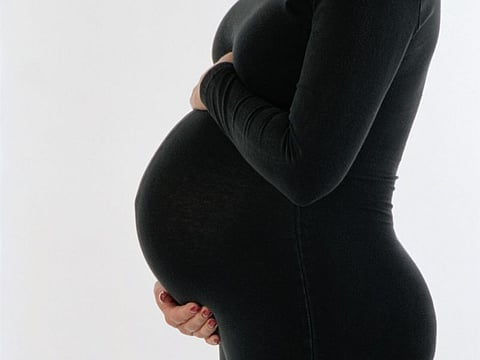TUESDAY, July 30, 2019 (HealthDay News) -- Pregnant women living near more oil and natural gas development activity have a greater chance of giving birth to children with congenital heart defects (CHDs), according to a study published online July 18 in Environment International.
Lisa M. McKenzie, Ph.D., M.P.H., from the University of Colorado in Aurora, and colleagues studied 3,324 infants born in Colorado between 2005 and 2011, of whom 187, 179, 132, and 38 were singleton births with an aortic artery and valve (AAVD), pulmonary artery and valve (PAVD), conotruncal (CTD), or tricuspid valve (TVD) defect, respectively. Cases were matched (1:5) to controls based on sex, maternal smoking, and race and ethnicity. Maternal proximity to oil and gas well site activities (low, medium, or high intensity) and births with CHDs were evaluated.
The researchers found that overall, the adjusted odds ratios for CHDs were 1.4 (95 percent confidence interval [CI], 1.0 to 2.0) and 1.7 (95 percent CI, 1.1 to 2.6) in the medium- and high-intensity groups, respectively, compared with the low-intensity group. Specifically, the adjusted odds ratios for PAVDs were 1.7 (95 percent CI, 0.93 to 3.0) and 2.5 (95 percent CI, 1.1 to 5.3) in the medium- and high-intensity groups, respectively, for mothers with an address listed in the second gestational month. In rural areas, compared with controls, the adjusted odds ratios for the medium- and high-intensity groups, respectively, were 1.8 (95 percent CI, 0.97 to 3.3) and 2.6 (95 percent CI, 1.1 to 6.1) for AAVDs, 2.1 (95 percent CI, 0.96 to 4.5) and 4.0 (95 percent CI, 1.4 to 12) for CTDs, and 3.4 (95 percent CI, 0.95 to 12) and 4.6 (95 percent CI, 0.81 to 26) for TVDs.
"Taken together, our results and expanding development of oil and gas well sites underscore the importance of continuing to conduct comprehensive and rigorous research on health consequences of early life exposure to oil and gas activities," McKenzie said in a statement.
Abstract/Full Text


